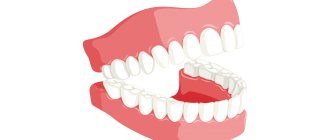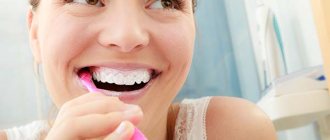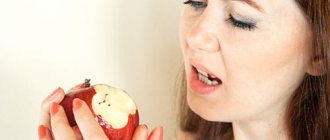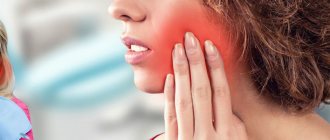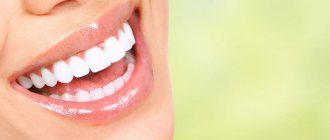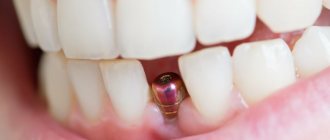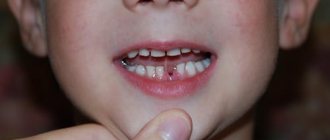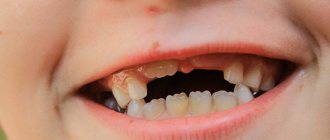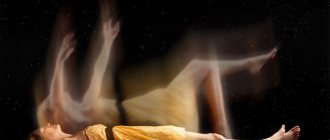Why do teeth hurt mostly at night and not during the day? This question interests a lot of people. Quite often, patients complain that the pain intensifies mainly at night. There are diseases that lead to the development of such ailments. Toothache develops due to the fact that the oral cavity contains a large number of nerve fibers, which become inflamed under the influence of various factors.
Common Causes of Pain
Experts identify the following diseases that lead to the development of toothache:
- Caries. The development of caries leads to damage to tooth enamel and dentin. In the resulting carious cavity, pathogenic microorganisms accumulate and rapidly multiply. When caries reaches a complicated stage, harmful bacteria practically reach the pulp, which is penetrated by nerve fibers. Pain syndrome occurs under the influence of irritating factors.
- Pulpitis. At this stage, damage to the pulp occurs, an inflammatory process develops in it, which spreads to all nerve endings. Painful sensations can occur without any external signs of disease.
- Periodontitis. With this disease, the inflammatory process develops in the tissues surrounding the tooth.
- Flux. This complication appears in the absence of timely treatment of pulpitis. The danger is that the developed inflammatory process spreads to the jaw and periosteum.
- Non-carious lesions of the enamel and hard layers of teeth. They arise as a result of mechanical damage to the tooth, resulting in destruction of the enamel. The main cause of pain with such a lesion is the same processes that occur during diseases.
- After the tooth filling procedure. When filling is performed incorrectly, when the specialist performs the manipulations incorrectly or does not follow the correct procedure, the patient may experience unpleasant pain, which intensifies mainly at night.
- After tooth extraction. Painful sensations that worsen at night may develop after tooth extraction.
Stomach pain and diarrhea
Diarrhea is often the cause of abdominal pain. Most often it occurs with an intestinal infection. In this case, the peak of discomfort in the abdomen usually occurs during the urge to go to the toilet, and they are combined with an increase in body temperature. Abdominal pain due to food poisoning or intestinal infection usually affects the entire abdomen.
If the body temperature remains within normal limits, the cause of a combination of abdominal pain
and diarrhea may also be pancreatic insufficiency, Crohn's disease, ulcerative colitis, mild intestinal infection.
If these symptoms occur, consult a doctor immediately. Before consulting a doctor, you can take activated carbon or other adsorbents. Under no circumstances should you take antidiarrheal medications without a doctor's prescription. By stopping diarrhea, they can promote the absorption of bacterial toxins into the blood and worsen the condition.
Physiological processes
The most common factors that cause pain at night are physiological. Most often, this phenomenon is caused by a horizontal position taken during rest. In this position, blood flows intensely to the head, brain and jaws, which increases pressure on the inflamed tissues and nerve endings of the teeth. It should be noted that this process is not typical for all dental diseases. The most common cause of acute and severe toothache at night is pulpitis. At this time of day, excessive pressure forms in the inflamed pulp due to increased blood flow, and bundles of nerve fibers begin to send active signals to the central nervous system. Excruciating pain, mainly at night, can also occur with periodontitis and periodontitis.
General characteristics of the condition
Severe paroxysmal pain indicates inflammation of the pulp (the inner tissue of the tooth). The pulp is localized inside the dental canal. It consists of a nerve, connective tissue cells and blood vessels. The main task of the pulp is to deliver vital elements to the hard tissues of the tooth. Inflammation of internal tissues is called pulpitis. Most often it develops when an infection occurs after long-term caries.
Content:
- General characteristics of the condition
- Possible reasons
- How to provide first aid?
- Features of therapy
- Is it possible to prevent pain?
- Why does pain worsen at night?
Physiological factors
A separate group of reasons why patients experience toothache at night includes physiological factors:
- The time interval is from 00 o'clock to 5 am. This period of time is the most stressful and difficult for the entire human body. It is at this time that pain intensifies and sensitivity to any lesions and diseases, including dental ones, increases.
- Physiologists say that at night the vagus nerve called the vagus is activated, which has a large number of branches, some of which extend to the head area. The vagus affects the general condition and mood of a person. At night, the tone of the vagus nerve changes, which leads to increased sensitivity and pain.
- Also, based on the characteristics of the biorhythm, at night, even in a healthy person, blood pressure increases significantly. High blood pressure increases toothache.
Prevention of bruxism in children.
- Give your jaws a rest . Unless your child chews, swallows, or talks, the top and bottom teeth should not touch. If your teeth touch, they clench, which is just one step away from grinding. Explain this to your child and ask him to try to keep his teeth slightly apart when his jaw is relaxed.
- Encourage exercise . Regular exercise can help your child relieve stress and muscle tension, which can cause nighttime teeth grinding in susceptible individuals.
- Quiet activities before going to bed . The child should not take part in wrestling, active and violent games before going to bed. Tense muscles need time to relax before your baby falls asleep. Make sure that the child is in a calm state an hour before going to bed. During this time, you can read a book or let him read on his own or look through a picture book.
- Try putting your baby to bed earlier . Your child may be overtired, which may encourage him to grind his teeth while sleeping. In this case, going to bed earlier may help.
- Avoid eating before bed . If digestive juices are working during the night shift, this can lead to unnecessary stress for the child during sleep. Don't give your child anything to eat or drink other than water an hour before bedtime.
- Talk to your child about his problems . If your child is worried about a difficult assignment or the upcoming premiere of a school play, this may be the reason that makes him grind his teeth at night. If something is bothering your child, don't let him go to bed with that worry in his head. Talking to him before going to bed so that he can leave all his worries behind, this often helps relieve tension. Make a five- or ten-minute conversation with you a daily calming procedure before your child falls asleep.
- Apply warm, moist compresses . If your child's jaw hurts in the morning, soak a washcloth in warm water, wring it out, and apply it to the sore jaw until your child feels better. This will help soothe the pain.
Other lesions
Sometimes pain that is mistaken for a toothache may be due to the effects of other diseases. These include:
- Inflammation of the tertiary nerve can cause severe jaw pain at night. As a result of the influence of various factors, the nerve can be severely irritated, which leads to sensations that can easily be confused with toothache.
- If toothache is felt not only in the area of one tooth, but spreads throughout the entire jaw, then such phenomena may be symptoms of inflammation of the periosteum of the tooth, and even some ENT diseases: sinusitis, sinusitis and otitis media. In a horizontal position, the outflow of fluid from the sinuses is hampered, which increases the discomfort and spreads it to the entire jaw.
In some cases, toothache at night can occur for reasons that are not related to dentistry. For example, due to severe exhaustion of the nervous system, lack of sleep or regular smoking.
First aid
What can you do to get rid of toothache at night? The best option is to take an analgesic or non-steroidal anti-inflammatory drug (Ketanov, Ibuprofen, Tempalgin, Ketorol, etc.). Another option is to use ointments or gels that relieve pain and reduce inflammation - these include Metrogyl Denta, Solcoseryl, Asepta, and Cholisal.
"Ketorol"
You should not use antibiotics to get rid of toothache - a single dose of a tablet will not have the desired effect, and in addition, it can blur the overall picture of the disease. It is also not recommended to take drugs such as Analgin and No-shpa. The first has a large number of side effects, and the second is designed to relieve spasms, so it is simply ineffective for toothache.
"Analgin"
If there is a carious cavity in the tooth, you need to rinse your mouth, carefully clean the cavity and place a piece of cotton wool soaked in clove oil, hydrogen peroxide or lidocaine. In addition, you can use special dental drops (for example, Dentaguttal) - they contain valerian tincture, camphor oil and clove oil, due to which they have an analgesic and anti-inflammatory effect.
"Dentaguttal"
The simplest and most accessible remedy for night toothache is rinsing with a soda solution (a tablespoon in a glass of water, rinse every hour). Instead of a soda solution, sometimes a saline solution is used - dissolve a teaspoon in a glass of water, add 5-6 drops and rinse the affected area. This solution reduces inflammation and tissue irritation and relieves swelling well.
When you have a toothache, it is better to lie on high pillows so that the blood drains from the head and does not put pressure on the nerve endings, and to reduce discomfort, you can apply a cold compress to your cheek. But in such cases it is prohibited to heat the affected area - if the cause of the pain syndrome lies in the inflammatory process, heat can lead to the proliferation of pathogenic microorganisms and worsening the condition.
Cold compress
What to do if your tooth hurts badly at night
It should be remembered that all independent procedures will only help temporarily reduce pain and not eliminate the disease. The most common folk methods include:
- Painkillers. Such medications effectively help eliminate unpleasant symptoms, which alleviates the general condition of a person. The dosage of drugs should be taken according to the instructions. Overdosing on a medicine can cause serious problems.
- The use of tinctures of medicinal herbs for rinsing the mouth. The following herbs are suitable for these purposes: calendula, oak bark, calamus root, chamomile, plantain and sage. They have anti-inflammatory and antiseptic effects. Infusions should be used only if there are no allergic reactions to the herbs used.
- Rinse with salt solution. This solution helps to temporarily eliminate discomfort and make you feel better. It does not cause allergies.
If the temperature rises sharply or swelling occurs, this may be a sign of the spread of the inflammatory process. In such a situation, you must immediately seek the help of a specialist.
Treatment.
Treatment of bruxism still remains a difficult problem. It depends largely on the time of development, causes and nature of the disease. Its treatment will be more successful the earlier the disease is diagnosed. You should not be concerned about short-term (up to 10 seconds) irregular attacks of teeth grinding. Most likely, this is not bruxism, but immediate reactions to stressful situations of a healthy person. The alarm should be sounded when such attacks become regular.
It is almost pointless to fight bruxism on your own. As soon as you suspect you have this disease, contact a sleep specialist. He will give you professional advice and prescribe competent treatment. It is important to know that bruxism in children sometimes does not require special treatment, and may eventually go away on its own by the age of 6-7 years. Bruxism in adults must be treated.
If bruxism persists in an adult, then:
- If possible, it is necessary to eliminate any existing dental problems or malocclusions.
- While sleeping, wear a special intraoral protective device (mouth guard) made of rubber or soft plastic, which is made to the shape and size of your teeth, is fixed between the teeth and prevents injury. Although this device helps to cope with bruxism, it does not cure it.
- As an additional treatment, you can use magnesium, calcium and B vitamins. Saturating the body with these microelements and vitamins can reduce the convulsive activity of the masticatory muscles during sleep.
- You can also apply a warm, damp towel to your cheeks, this will help you relax muscles that are tired from clenching your teeth.
- Learn to relax. - Since the main cause of bruxism is everyday stress, any means of relieving stress can help you - listening to music, reading books, walking or taking a bath. You may need to seek counseling to learn how to effectively cope with stressful situations.
- Psychotherapy is the best way to help, which is aimed at identifying conflicts, understanding them and developing the ability to more effectively cope with the everyday difficulties of life.
Visit to the dental office
When visiting a dental clinic, the specialist will conduct a thorough examination of the oral cavity, then prescribe the patient to undergo an x-ray examination. Images are necessary to determine the extent of tissue damage, detect the source of inflammation and make the correct diagnosis. Treatment of deep caries and pulpitis is carried out using the same methods. During treatment, the doctor:
- Provides local anesthesia by injecting an anesthetic into the tissue surrounding the diseased tooth.
- Eliminates affected tissue.
- Performs mechanical and antiseptic treatment of canals.
- Performs canal fillings.
- Takes a control photograph of the tooth.
- Restores the damaged part of the tooth.
After undergoing treatment for deep caries or pulpitis, the patient may still feel discomfort and unpleasant sensations for some time, which should subside over several days. In case of periodontitis and periostitis, it is initially necessary to eliminate the source of infection. To do this, root canals are cleaned and processed. Treatment of gumboil and periodontitis takes longer. After eliminating the source of infection, the canals are filled and the crown of the tooth is restored. Sometimes surgical methods are used to treat flux. If you ignore the problem and do not seek the help of a dentist, then the chances of saving the tooth are greatly reduced. If acute toothache occurs due to the eruption of the eighth tooth, then it is very important to promptly seek the advice of a specialist. After examining the oral cavity and conducting an X-ray examination, the doctor will select the most effective treatment method in each specific case. The dentist begins performing therapeutic procedures after administering local anesthesia. Modern anesthetics are highly effective and well tolerated by the body.
Examples of interpretations
To correctly interpret a dream, it is advisable to look at several different interpretations. You should also focus primarily on modern dream books , since attitudes towards dental health in the past and present can vary greatly (for example, in some Russian provinces it was customary to blacken individual teeth, which was a symbol of belonging to a noble family).
We should not forget that the most accurate interpreter of one’s own dreams is a person’s intuition.
Dream Book of David Loff
Bad teeth warn the dreamer of an impending career collapse. A person needs to give up impulsive actions and risks in the near future, since luck will not be on his side. A lost rotten tooth, which caused the dreamer great discomfort, indicates liberation from a heavy burden with the assistance of an influential person .
If a person in a dream, in addition to terrible pain, has a swollen cheek, then this portends him committing a shameful act. The stronger the intensity of pain, the more unpleasant the possible negative events will be.
The Wanderer's Dream Book
Modern esotericist Terenty Smirnov believes that the key importance for the interpretation of this dream is the personality of the dreamer, his age and type of activity. If a pregnant woman wants to understand why she dreams that her tooth hurts, she needs to remember the people she met just the other day - behind their mask of friendliness lies envy and resentment.
For an adult man, such a dream promises a series of minor failures that can unsettle him for a long time.
The interpretation of such a dream for a child is simple: either he develops a painful process in the mouth area, or he deceived someone and regrets it. It is curious that if a sore tooth also bleeds, then this indicates the dreamer’s damaged reputation as a result of false rumors and gossip .
Denise Lynn's interpretation
Painful sensations in a dream allow us to speak about the dreamer’s excessive restraint in real life, his tendency to hide his emotions behind ostentatious indifference and calm. Pain in the teeth indicates that a person prefers to tell white lies rather than frankly express his thoughts. Also, such a dream may indicate the following points:
- The dreamer will face the consequences of the mistakes he has made.
- A person spends too much time feeling sorry for himself.
- An upcoming quarrel or discord over money or worries regarding your well-being.
Going to the dentist in a dream means the dreamer is counting on outside help in solving his problems. If a person looks at a disturbing tooth in the mirror, then this indicates a tendency to justify himself and his actions. An attempt to independently pull out a diseased incisor - the dreamer will dare to take decisive actions that will end in success .
Interpretation by Gustav Miller
A famous psychologist believed that bad teeth symbolize inner fear of other people, as a result of which a person is forced to hide his true intentions and, if necessary, lie. Also, in order to understand why you dream of a bad tooth, you need to know that toothache often occurs in real life, while a person is sleeping. The brain, focusing on these signals, creates a dream with a similar plot (i.e., this indicates the beginning of a pathological process in the mouth).
You should also pay attention to the following points:
- Pain in the teeth indicates that a person has taken on a task that is too difficult for him.
- The dreamer has a sensitive psyche that reacts sharply to the slightest trouble in life.
- A person needs mental peace, his body is tired and requires rest.
If unpleasant sensations appear in a dream after brushing your teeth, this indicates that the person is too zealous in trying to live up to his ideal image (or idol).
Pain while eating indicates the dreamer's reluctance to do what he is forced to do at the moment.
Oral care
After treatment and elimination of painful sensations, to prevent such situations in the future, you should adhere to the following mandatory rules:
- Carry out regular, thorough cleaning of your teeth and gums with a brush and paste. Use additional hygiene products in the form of rinses, flosses and irrigators.
- undergo regular preventive examinations with a dentist.
- It is extremely important to eat right. To do this, you need to reduce the amount of sweets, confectionery and sweet carbonated drinks you consume. It is important to balance your diet with as many fruits, fresh vegetables, and herbs as possible.
- try not to smoke or drink alcoholic beverages. Nicotine negatively affects the entire human body. People who smoke develop pigmented plaque on their teeth, which provokes the development of gingivitis and periodontitis. Alcohol reduces immunity and contributes to the development of mucosal dystrophy.
- carefully monitor and be attentive to your health!
Types of bruxism.
There are two forms of bruxism: daytime and nighttime.
Daytime bruxism manifests itself while you are awake. A person clenches his teeth strongly (even to the point of dental stenosis) in moments of emotional stress.
Night bruxism manifests itself in the clenching of teeth and grinding or knocking them during sleep, when a person cannot control himself. In this case, several attacks may occur during the night. Nighttime bruxism occurs much more often than daytime bruxism.
Pain in the right hypochondrium
If there are problems with the discharge of bile, the pain is usually concentrated in the right hypochondrium, can radiate to the right collarbone, and is sometimes accompanied by nausea. The cause of such pain may be disorders of the biliary tract, cholelithiasis or cholecystitis. Less commonly, discomfort in the right hypochondrium can accompany inflammation of the liver (hepatitis).
If you have pain in the right hypochondrium, you should consult a gastroenterologist. He will prescribe an ultrasound of the abdominal cavity, check the condition of the liver and prescribe appropriate treatment.
Without a doctor’s examination, it is strictly forbidden to carry out treatment with “traditional” methods, including the so-called liver cleansing. If a patient with gallstones begins the “cleaning”, the stones can come out of the bladder, get stuck in the ducts and cause severe jaundice.
Differential diagnosis
Differential diagnosis is based on the features of the clinical picture of the disease. For example, with ankylosing spondylitis there are no lesions of symmetrical joints and rheumatoid nodules characteristic of rheumatoid arthritis. Rheumatoid arthritis causes joint deformity, but rheumatoid arthritis does not. A duodenal ulcer can be suspected in the presence of dyspeptic symptoms, and pyelonephritis can be suspected in the presence of concomitant urological disorders with systemic manifestations of malaise and fever. Immunopathological diseases are mainly diagnosed by laboratory methods. Dystrophic and degenerative - instrumental.
It is necessary to conduct a comprehensive diagnosis to accurately determine the pathology
Anatomy
First of all, it is necessary to clarify what belongs anatomically to the back. This is necessary in order to represent the projection of the internal organs and exclude their disorders as the cause of pain. The back is the back side of the torso (the torso is the part of the body that does not include the head, neck and limbs). The upper border of the back is the cervical region, the lower - the lower back. The back is formed by the vertebrae, the back of the ribs and soft tissues. The so-called retroperitoneal space extends from the diaphragm to the small pelvis. The organs located in it are surrounded by fatty tissue.
Back pain can be caused by various reasons, which can be associated with both the locomotor system and internal organs.
The retroperitoneal (retroperitoneum - retroperitoneal space) includes: kidneys, adrenal glands, ureters, ascending and descending colons, descending and horizontal parts of the duodenum and pancreas (the retroperitoneal space also contains great vessels). Any disturbances in the structures that form the wall of the back of the body and in the organs that project to the dorsal region can cause back pain.
Dental consultation
Careful dental care and regular visits to the dentist are the key to good health. Inexpensive dental treatment and effective treatment results at the ARTE-S center ensures excellent condition of the dental system for each client. The dentist finds the triggering factors for night pain and offers the patient an optimal treatment regimen.
- In pulpitis, when there is aching discomfort or throbbing tenderness, the unit is opened and the pathological tissue is removed. An x-ray is taken. The photo will show the shape and length of the canals. After cleaning them, a filling is installed.
- Acute pain accompanies periodontitis, especially with mechanical loads. After professional cleaning, drug therapy and sanitation are prescribed; radical measures and prosthetics may be required.
- Dull, unpleasant sensations are characteristic of periodontal disease. To remove the symptoms of the disease and improve tissue nutrition, you first need to cure caries, remove dental plaque, and carry out medication and physical therapy. Ultrasound and splinting are also used, and operations are prescribed according to indications.
Instant pain is characteristic of injured masticatory organs. In case of dislocation, therapy is prescribed and splinting structures are applied. If the pulp is dead, endodontic treatment is necessary. When a crown is fractured, it is restored using inlays, artificial crowns, and composite materials. When the root is fractured, most often the unit is removed and a pin is installed.
Features of the occurrence and course of night pain
The main factors that increase pain at night are psychogenic and endocrine. First, a person's attention during the day is occupied by aspects of his active life. Both mental and physical labor are factors distracting from pain. The daily production of adrenal hormones predominates during the day. The adrenal glands produce glucocorticoids, which are anti-inflammatory and analgesic agents. At night, the level of these hormones decreases. Consequently, during the day the pain is weaker and a person’s so-called pain threshold is higher (this means that the pain sensation must be stronger than at night in order to cause discomfort in a person).
At night, a person feels pain especially strongly, as he becomes more passive in his movements and begins to “listen” to the body

